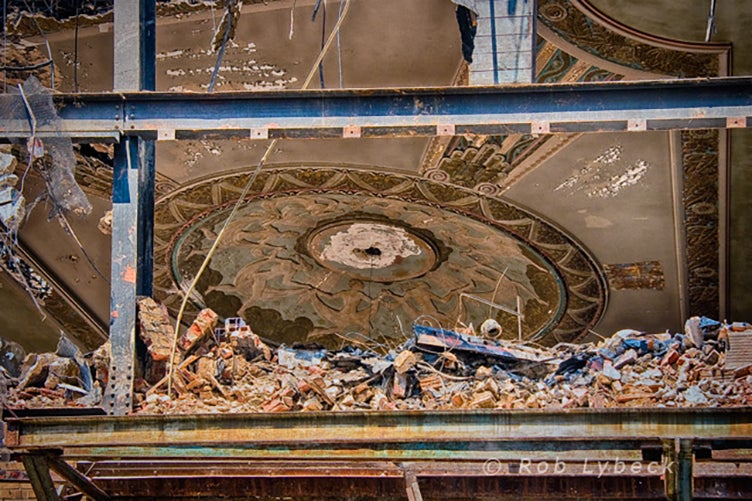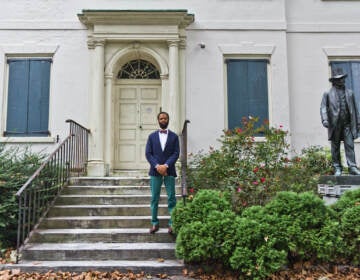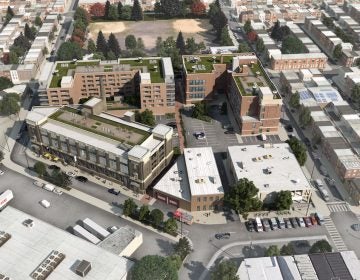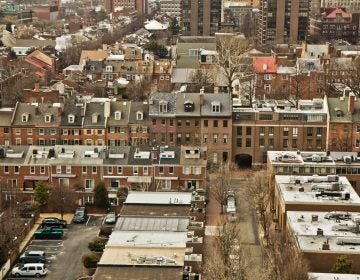Parsing the preservation record

The Inquirer’s Claudia Vargas recently sat down with Alan Greenberger, deputy mayor for economic development and commerce and executive director of the planning commission, to reflect on his seven years with the Nutter Administration. Greenberger talked zoning reform, Philly’s real estate environment, and his perspectives on economic development. Their Q&A is worth reading, but this particular exchange stuck with me:
Q: How would you grade yourself and the administration on preservation efforts in the city?
A: I believe totally that our Historical Commission, whose job is to apply the historical preservation laws of the city, which include findings occasionally of financial hardship around projects in particular, I think they do an outstanding job. . . . Very difficult judgment calls have to be made with preservation.
A lot of [church] buildings are in trouble. Same with theaters. They are of a type – big volumes, hard to reuse, expensive to pull off, very limited resources to make things happen.
Q: Do you have any regrets about the Boyd Theatre coming down?
A: It was a painful episode. I didn’t like seeing the Boyd come down, either. On the other hand, the Boyd has been sitting there, empty, blighting an entire block, for a decade and a half. . . . I think in the end the Historical Commission reached the right conclusion. . . . I also think we are going to get a very good development down there.
There are three things worth parsing here:
1. It’s a testament to the state of Philadelphia preservation that these questions were even asked. Preservation has long taken a back seat locally, except when company comes and we dust off our heritage, like polishing the family silver to impress guests. For years, Philadelphia has seemed far more interested in recalibrating its development climate than worrying about what older buildings might stand in the way. But it feels like public sentiment is shifting and the political winds could change too. Maybe preservation will be for the next mayor what planning was for Nutter: a worthy but anemic area of public interest worth spending city resources on to improve. (Wishful thinking, maybe. But that’s a wish worth having.)
2. Greenberger’s overall response, that the Historical Commission is doing an “outstanding job” is telling. That’s really high praise for a commission under pressure, understaffed, unable to designate all but a dozen or two buildings a year, unable to pursue new historic districts absent political support, and lacking in both research and enforcement capacities. Outstanding? Sure, under the circumstances of severe limitations in an ever-bubbling development environment. And yes, part of the commission’s job is making “difficult judgment calls.” But that comes out sounding a little like that Teen Talk Barbie (“Math class is tough!”). You know what’s also tough? Finding the political will to stand up for both the commission and the resources it’s charged with caring for.
3. There’s been plenty of grousing that Greenberger’s role as deputy mayor for economic development and commerce, running the section of the administration that includes the historical commission, presents a conflict of interest. That line of argument is tired, but when Greenberger casts something like the Boyd’s demolition as the “right” outcome of a “very good development,” doesn’t that speak volumes?
WHYY is your source for fact-based, in-depth journalism and information. As a nonprofit organization, we rely on financial support from readers like you. Please give today.








